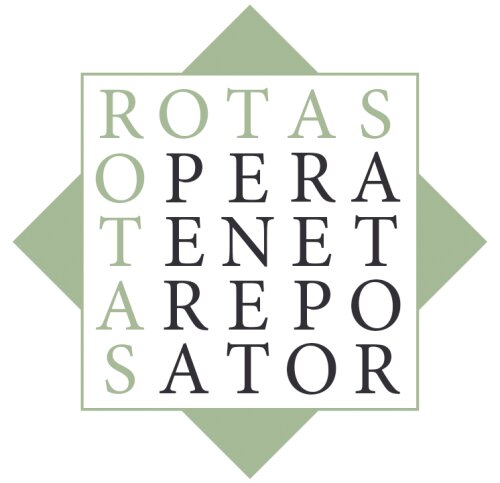Best Biotechnology Lawyers in Rome
Share your needs with us, get contacted by law firms.
Free. Takes 2 min.
List of the best lawyers in Rome, Italy
About Biotechnology Law in Rome, Italy
Biotechnology in Rome, Italy, encompasses a broad range of practices that involve the use of living organisms and bioprocesses in engineering, technology, and other fields requiring bio-products. Rome, as part of Italy, follows European Union regulations alongside its national laws to govern biotechnological inventions, which include medical and pharmaceutical innovations, agriculture, and genetically modified organisms (GMOs). These laws focus on ensuring safety, ethical considerations, and intellectual property rights within the field.
Why You May Need a Lawyer
Legal advice is often sought in the biotechnology field for various reasons. Companies and researchers may need assistance with patent and intellectual property rights to protect their innovations. Compliance with regulatory requirements, including those related to clinical trials, environmental safety, and GMOs, is another area where legal counsel is critical. Furthermore, contracts and agreements, such as licensing, research collaborations, and partnership deals, typically require legal expertise to avoid disputes and ensure the interests of all parties are legally protected.
Local Laws Overview
The key aspects of local laws in Rome particularly relevant to biotechnology derive primarily from EU legislation and national regulations. Italy has implemented the European Biotech Directive (98/44/EC), which harmonizes the legal protection of biotechnological inventions across Europe. Additionally, the Italian Code of Intellectual Property includes specific provisions related to biotechnology patents. Environmental laws, bioethics standards, and safety regulations are shaped by national laws and the EU's stringent standards regarding GMOs and the traceability and labeling of GMO products.
Frequently Asked Questions
What are the regulations for patenting a biotech invention in Rome?
Biotech inventions in Rome must comply with the European Biotech Directive as well as Italian patent law. They must be novel, involve an inventive step, and be susceptible of industrial application to be patentable.
How does Rome regulate the use of GMOs?
Rome follows EU regulations on GMOs, which are quite strict. This includes assessments of environmental risk, food and feed safety, and labeling requirements for GMO products.
Are there special considerations for biotech clinical trials in Italy?
Yes, clinical trials for biotech products are subject to the European Medicines Agency (EMA) regulation, along with specific Italian requirements, concerning ethics, safety, and the conduct of trials.
What do I need to know about the commercialization of biotech products?
Commercialization requires attention to patent rights, regulatory approvals, and proper marketing practices. Additionally, Italy has specific regulations for the advertising and sale of pharmaceutical products.
What should I know about bioethics in Italian biotech law?
Italy, like many EU countries, has strong bioethics laws that affect biotech research and products, particularly in genetics and reproductive technology.
How are trade secrets protected in the biotechnology industry?
Trade secrets are protected under Italian law, which requires companies to maintain confidentiality and take steps to secure sensitive information.
Can I file a biotech patent application in English in Italy?
While the national patent application needs to be in Italian, one can file a European patent application in English which is also valid in Italy, following its validation.
Are there incentives for biotech companies in Italy?
Yes, Italy offers various incentives, including tax credits and grants, for research and development activities within the biotech sector.
Is there legal support available for start-ups in biotechnology?
Legal support for start-ups often comes from specialized legal firms and innovation hubs, as well as legal clinics associated with universities and public institutions.
What are the consequences of non-compliance with biotech laws in Rome?
Non-compliance can lead to penalties, including fines, revocation of licenses or approvals, and potentially, criminal charges.
Additional Resources
For those in need of legal advice in the field of biotechnology, the Italian Patent and Trademark Office (UIBM) and the Italian Medicines Agency (AIFA) are key resources. The European Patent Office (EPO) is also a critical body for patent issues. Moreover, the Italian Association for the Development of Biotechnology (Assobiotec) provides various services and information for those active in the sector. Additionally, universities and research institutions in Rome can serve as valuable sources of information and networking.
Next Steps
If you require legal assistance in biotechnology, it's important to consult with a lawyer who specializes in this complex field. Seeking out legal firms with a strong background in biotechnology and pharmaceutical law is advisable. Ensure that the lawyer or legal team you choose has experience in dealing with the specific issues you are confronting, be it intellectual property, regulatory compliance, or contractual matters.
Lawzana helps you find the best lawyers and law firms in Rome through a curated and pre-screened list of qualified legal professionals. Our platform offers rankings and detailed profiles of attorneys and law firms, allowing you to compare based on practice areas, including Biotechnology, experience, and client feedback.
Each profile includes a description of the firm's areas of practice, client reviews, team members and partners, year of establishment, spoken languages, office locations, contact information, social media presence, and any published articles or resources. Most firms on our platform speak English and are experienced in both local and international legal matters.
Get a quote from top-rated law firms in Rome, Italy — quickly, securely, and without unnecessary hassle.
Disclaimer:
The information provided on this page is for general informational purposes only and does not constitute legal advice. While we strive to ensure the accuracy and relevance of the content, legal information may change over time, and interpretations of the law can vary. You should always consult with a qualified legal professional for advice specific to your situation.
We disclaim all liability for actions taken or not taken based on the content of this page. If you believe any information is incorrect or outdated, please contact us, and we will review and update it where appropriate.
















